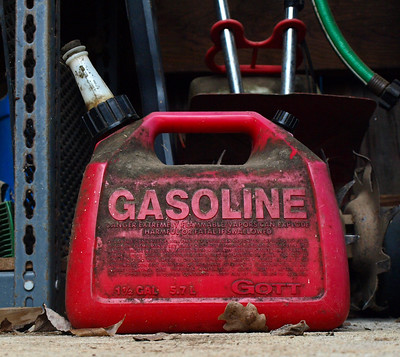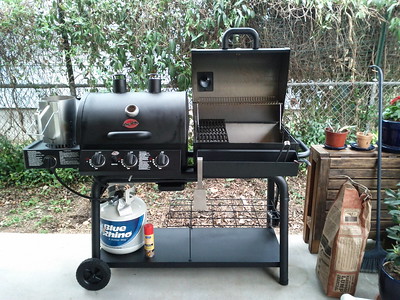
Butane and gasoline are both hydrocarbon-based fuels that are derived from crude oil or natural gas. These fuels have similar chemical structures, with both consisting primarily of carbon and hydrogen atoms. However, despite these similarities, they have different properties and are used for different purposes.
One of the main differences between butane and gasoline is their physical state. Gasoline is a liquid at room temperature and must be stored in special containers designed to prevent leaks and evaporation. In contrast, butane is a gas that is commonly stored in small, portable canisters. This makes butane a popular choice for outdoor activities such as camping, where a lightweight and portable fuel source is needed.
Another difference between butane and gasoline is their energy output. Gasoline contains more energy per unit of volume than butane, which is why it is commonly used as a fuel for high-performance engines in cars, trucks, and other vehicles. The higher energy output of gasoline also makes it a popular choice for larger-scale applications such as power generation and industrial processes.
Butane, on the other hand, has a lower energy output than gasoline. However, it burns more cleanly and produces fewer emissions, which makes it a popular choice for indoor heating and cooking. Butane is also commonly used in portable camping stoves and other outdoor equipment.
While butane and gasoline share some similarities as hydrocarbon-based fuels, they have different properties and are used for different purposes. Gasoline is a liquid fuel primarily used in vehicles and high-energy applications, while butane is a gas that is commonly used for heating, cooking, and other household purposes, as well as outdoor activities.
Comparison of Butane and Gasoline
| Property | Butane | Gasoline |
|---|---|---|
| Chemical formula | C4H10 | Mixture of hydrocarbons |
| State | Gas | Liquid |
| Energy content per unit volume | Lower | Higher |
| Density | Lower | Higher |
| Storage | Pressurized containers | Liquid tanks/containers |
| Combustion characteristics | Higher flash point, narrower range of flammability | Lower flash point, wider range of flammability |
| Environmental impact | Fewer pollutants, still a fossil fuel | More pollutants, still a fossil fuel |
Butane: Properties and Uses
Here are some properties and uses of butane:
Properties:
- Butane is a colorless and odorless gas at room temperature and pressure.
- It is a highly flammable gas with a narrow range of flammability.
- Butane is less dense than air, and thus it can rise and accumulate in enclosed spaces, posing a risk of fire or explosion.
- It is soluble in organic solvents but insoluble in water.
- Butane has a boiling point of -1°C and a melting point of -138°C.
Uses:
- Butane is used as a fuel for heating, cooking, and lighting in portable stoves, lighters, and torches.
- It is also used as a propellant in aerosol products, such as hair sprays, deodorants, and insecticides.
- Butane is used in the production of synthetic rubber and as a refrigerant in air conditioning and refrigeration systems.
- It can also be used as a solvent for extracting essential oils from plant materials.
Butane is a versatile gas with several uses in various industries, such as household, industrial, and chemical. However, its highly flammable nature requires proper handling and storage to ensure safety.
Gasoline: Properties and Uses
here are some properties and uses of gasoline:
Properties:
- Gasoline is a complex mixture of hydrocarbons, typically containing between 8 and 12 carbon atoms.
- It is a colorless liquid with a characteristic odor.
- Gasoline is highly flammable and has a wide range of flammability.
- It is less dense than water and can float on the surface of water.
- Gasoline has a boiling point range of about 30°C to 215°C.
Uses:
- Gasoline is primarily used as a fuel for internal combustion engines in cars, trucks, motorcycles, and other vehicles.
- It is also used as a solvent for cleaning and degreasing, as well as in the production of various chemicals, such as synthetic rubber, plastics, and detergents.
- Gasoline is used as a raw material for producing aviation fuel, diesel fuel, and other refined petroleum products.
- It can also be used in some recreational activities, such as power boating and snowmobiling.
Gasoline is a widely used fuel and industrial chemical that plays a crucial role in modern society. However, its combustion releases pollutants that contribute to air pollution and climate change, highlighting the need for alternative fuels and cleaner technologies.
Safety Considerations
When using butane or propane in the home, safety considerations are extremely important. Both of these gases are highly flammable and can pose a serious safety risk if not handled properly. Here are some key safety tips to keep in mind:
- Read and follow the manufacturer’s instructions: Always read the instructions that come with your butane or propane appliance and follow them carefully. This includes information about proper storage, handling, and usage.
- Store fuel in a cool, dry place away from heat sources: Keep butane or propane canisters in a cool, dry place away from direct sunlight, heat sources, and flames. Do not store fuel canisters near other combustible materials or chemicals.
- Keep fuel containers away from children and pets: Butane and propane canisters can be dangerous if they fall into the wrong hands. Keep them out of reach of children and pets at all times.
- Use fuel in well-ventilated areas: Butane and propane appliances should only be used in well-ventilated areas. If you are using an appliance indoors, make sure there is plenty of fresh air circulating to avoid carbon monoxide buildup.
- Check for gas leaks regularly: Gas leaks can be dangerous and can lead to fires or explosions. Regularly check your butane or propane appliances for gas leaks, and never use a leaking appliance.
In addition to these general safety tips, there are some specific safety considerations to keep in mind when using butane or propane.
For butane, it is important to properly store and handle canisters to prevent leaks or explosions. Butane stoves and heaters should only be used in well-ventilated areas, and you should always keep an eye on the flame to make sure it is burning safely. Finally, be aware of the signs of carbon monoxide poisoning, such as headache, nausea, and dizziness.
For propane, proper installation and maintenance of propane tanks is critical to safety. Propane appliances should only be used with the type of propane specified by the manufacturer, and tanks should be inspected regularly for leaks or damage. If you smell gas or suspect a propane leak, evacuate the area immediately and call the fire department.
Finally, it is important to be prepared for emergencies. Develop a fire safety plan for your home and make sure everyone in your household knows what to do in case of a fire or gas leak. Keep a fire extinguisher and first aid kit on hand, and make sure they are easily accessible in case of an emergency.
To Make a Finalization
Butane and gasoline are both hydrocarbon fuels, but they have some differences in their properties and uses.
Butane is a colorless, odorless gas that is commonly used as a fuel for lighters, torches, and camping stoves. It is typically stored in pressurized canisters or tanks. Butane has a relatively low boiling point and can easily vaporize, making it useful for applications that require a quick release of energy, such as starting a fire or heating a small space.
Gasoline, on the other hand, is a liquid fuel that is used in automobiles, boats, and other internal combustion engines. It is a mixture of hydrocarbons that varies in composition depending on the source and refining process. Gasoline has a higher energy density than butane, meaning it can release more energy per unit of volume or weight. It is also less volatile than butane, making it more stable for storage and transportation.
So while butane and gasoline are both hydrocarbon fuels, they have different properties and are used for different purposes.

Jeremy is a highly experienced professional propane technician with over 21 years of experience in the industry. Throughout his career, he has gained extensive knowledge and expertise in propane gas installation, maintenance, and repair, as well as in ensuring safety and compliance with industry standards. Mike has worked with various residential, commercial, and industrial clients, providing top-notch services and solutions to meet their propane needs. He is dedicated to his craft and passionate about delivering exceptional service to his clients.



